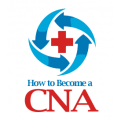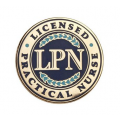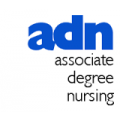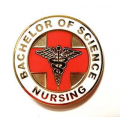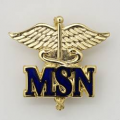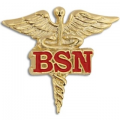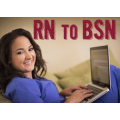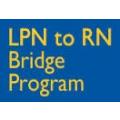The U.S. is home to around 1.5 million nursing assistants. Most work in skilled nursing facilities or hospitals. Regardless of the setting, aspiring nursing assistants must complete a state-approved education program and pass their state’s competency exam. Passing the exam places them on their state’s registry and allows them to use state-specific titles. While some states such as South Dakota and Indiana use the title “certified nurse aide” (CNA), the most common title is “certified nursing assistant” (also CNA).
Nursing programs of study
Nursing programs vary widely in scope, from certificate programs of several weeks to graduate degrees that require years of study. We’ve listed below the full range of programs available at accredited U.S. nursing schools. In particular, we’ve profiled several potential pathways for aspiring registered nurses.
The doctor of philosophy (PhD) in nursing is designed for students who want to pursue research in an academic, clinical, or scientific environment. Graduates of nursing PhD programs can assume roles as advanced practice registered nurses (APRNs), nurse educators, directors of nursing research, leaders of healthcare organizations, consultants, and even authors. Some graduates may opt to work for government agencies such as the Department of Health and Human Services (HHS) or the Agency for Healthcare Research and Quality (AHRQ).
A doctor of nursing practice (DNP) is the terminal degree for RNs pursuing a leadership role in clinical practice, advanced practice registered nursing (APRN), teaching, hospital administration, or research. Fortunately, the demand is high for professionals in each of these fields, with APRNs leading the pack. According to the Bureau of Labor Statistics, APRN employment will grow 31 percent over the next decade, much faster than the average for all occupations.
Graduate nursing certificate programs are designed for experienced registered nurses (RNs) who already hold a master of science in nursing (MSN) degree. These programs enable RNs to develop knowledge and skills in an additional practice area. Graduate certificates span a broad spectrum of specialized practice areas including nursing administration, nursing education, nursing informatics, adult health / gerontology, nursing midwifery, pediatric nursing, women’s health nursing, nursing management, palliative care, and psychiatric-mental health nursing.
Registered nurses (RNs) comprise the largest group of professionals in the healthcare industry. The typical RN receives an impressive median salary of $66,000 per year, and high-performing RNs can earn $80,000 or more annually. Many of these nurses hold just an entry-level diploma or associate’s degree in nursing (ADN). However, the very top earners hold a master of science in nursing (MSN) degree, a requirement for a lucrative position as an advanced practice registered nurse (APRN).
A direct-entry master of science in nursing (MSN) program is designed for students who hold a non-nursing bachelor’s degree and wish to pursue an advanced degree in nursing. The program takes two years of full-time study to complete, and it prepares students to sit for the National Council Licensure Examination (NCLEX), a licensure requirement for aspiring registered nurses (RNs). Graduates are prepared to assume leadership roles in hospitals, clinics, residential care facilities, physicians’ offices, and other healthcare environments.
A master of science in nursing (MSN) degree prepares students for some of the highest-paid fields in the healthcare industry. Known collectively as advanced practice registered nurses (APRNs), these professionals can earn between $90,000 and $150,000 per year depending upon their field of specialization. Projected employment growth for APRNs is 31 percent over the coming decade, which is significantly higher than average.
Did you know that the average person holds more than ten jobs during his or her lifetime? Some professionals even change careers five to seven times. Although these individuals may hold one or more degrees, their previous education might not meet the requirements of their new career field. This is especially true when entering a technical field like nursing. To qualify as a registered nurse (RN), a candidate must hold a hospital diploma, associate’s degree in nursing (ADN), bachelor of science in nursing (BSN), or direct-entry master of science in nursing (MSN).
An RN-to-BSN completion program is designed specifically for registered nurses (RNs) that already hold a license to practice in the U.S. The program is popular among RNs with an associate’s degree in nursing (ADN) or hospital diploma, because it enables them to complete their baccalaureate degree in a streamlined manner.
Registered nurses (RNs) form the largest healthcare occupation, with more than 2.7 million practicing across the U.S. The field will experience faster-than-average employment growth of 19 percent over the coming decade. This will drive more than 500,000 new nursing jobs, with particularly high demand in general medical and surgical hospitals. Due to the rigorous demands of the job, the nation’s top hospitals prefer to hire talented RNs with at least a bachelor of science in nursing (BSN) degree.
An LPN-to-RN bridge program is a unique program designed specifically for licensed practical nurses (LPNs) that would like to advance their careers. It allows LPNs to earn an associate’s degree in nursing (ADN) – either an associate of science in nursing (ASN) or an associate of applied science in nursing (AAS) – in order to transition into the role of registered nurse (RN). The bridge program builds upon the LPN’s existing knowledge with an advanced curriculum, including a higher-level general education core and nursing coursework.

